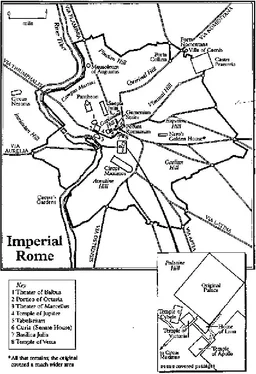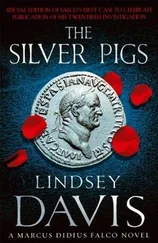Lindsey Davis - The course of Honor
Здесь есть возможность читать онлайн «Lindsey Davis - The course of Honor» весь текст электронной книги совершенно бесплатно (целиком полную версию без сокращений). В некоторых случаях можно слушать аудио, скачать через торрент в формате fb2 и присутствует краткое содержание. Жанр: История, на английском языке. Описание произведения, (предисловие) а так же отзывы посетителей доступны на портале библиотеки ЛибКат.
- Название:The course of Honor
- Автор:
- Жанр:
- Год:неизвестен
- ISBN:нет данных
- Рейтинг книги:5 / 5. Голосов: 1
-
Избранное:Добавить в избранное
- Отзывы:
-
Ваша оценка:
- 100
- 1
- 2
- 3
- 4
- 5
The course of Honor: краткое содержание, описание и аннотация
Предлагаем к чтению аннотацию, описание, краткое содержание или предисловие (зависит от того, что написал сам автор книги «The course of Honor»). Если вы не нашли необходимую информацию о книге — напишите в комментариях, мы постараемся отыскать её.
The course of Honor — читать онлайн бесплатно полную книгу (весь текст) целиком
Ниже представлен текст книги, разбитый по страницам. Система сохранения места последней прочитанной страницы, позволяет с удобством читать онлайн бесплатно книгу «The course of Honor», без необходимости каждый раз заново искать на чём Вы остановились. Поставьте закладку, и сможете в любой момент перейти на страницу, на которой закончили чтение.
Интервал:
Закладка:
At the age of sixteen Nero married Octavia. This made Octavia his sister, his cousin, and his wife; Claudius was both his father and father-in-law. Even by the contorted standards of the Julio-Claudian house it was unusual. Nero arranged celebratory Games in honor of the Emperor, appearing himself in full triumphal robes while Britannicus wore the usual narrow-striped tunic of a boy at school. People in the audience exchanged old-fashioned looks.
There was now a most unfortunate change: Britannicus briefly became popular again. Claudius, who for a long time after Messalina's death had viewed Britannicus with painful reserve, seemed to rediscover his original dislike of Nero, who was indeed regarded as highly unpleasant by all people of style and taste. Instead, the Emperor took to flinging his arms round Britannicus whenever they met, quoting darkly in Greek and exclaiming, "Grow up quickly, my boy, and your father will tell you his plan!"
Britannicus had become a stoical child. He took all this in apparent good part. He had two sensible allies throughout; one was Narcissus. The other, who held no official post, so she could never be dismissed, was his grandmother's freedwoman Antonia Caenis.
* * *
Caenis and Britannicus became good friends. Caenis was well-presented enough to carry a sniff of danger for an adolescent boy, yet ancient enough to be safe; she said she refused to mother him, though when he needed it she always did. Britannicus had been brought up rather primly; she discussed politics with him in a way that sounded treasonous and told him stories that were definitely rude. They played a private game of challenging each other in any situation to find a song from the drama to fit. He had an excellent voice. It was natural that Caenis should be drawn to a child growing up in the Palace so starved of affection yet so good-humored and sane.
She was giving Britannicus secret shorthand coaching so he could catch up with one of the other boys who shared his education. It was while they were practicing, ready to surprise the Other Boy, that the door flung open and someone shot into the room. There was no doubt who it was. It had to be the competitive rival, because Britannicus, with great presence of mind, slipped his notebook down the back of his reading couch and adjusted a vase to hide the water clock by which he had been timing himself. Then he winked at Caenis.
She had never seen him before, but she recognized the Other Boy at once.
Her protégé, Britannicus, was by now as tall as many men, with the same gaunt neck and prominent ears as his father; at thirteen he was going through a gangly, self-conscious phase. Since their mother's death both he and his sister Octavia were understandably solemn and withdrawn. This boy was quite different. Britannicus' friend—they were obviously friends—was a short, square, dynamic tugboat of a boy. He was built with the graceful solidity of an obelisk. He had a thick thatch of tightly curling hair, and though his nose was straighter than his father's, an identical upjerking chin and rectangular brow.
"Aha! New ladylove?" he cried, stopping in surprise. Britannicus blushed; he was old enough to be interested, yet young enough to be terrified of women.
Caenis tried to adopt the air of a sophisticated, extremely expensive witch. "You must be Titus!" she divined coolly. "Titus Flavius Vespasianus, son of Titus, voting tribe Quirina, citizen of Reate."
Both children were deeply impressed.
"This is the face-detector?" Titus demanded of Britannicus eagerly.
Britannicus replied with a nicely suave, secretive smile. He was learning fast; it was wonderful to watch. "Just a friend," he tormented the other, who was bursting with curiosity. "Going to give me a second opinion, I hope."
Caenis endured the odd experience of being eyed appraisingly by Vespasian's teenaged son.
* * *
It turned out that Narcissus was still worrying over his dynasty, pointless though that was beginning to appear. He had called in a physiognomist, someone who would tell Britannicus' fortune from his face. Since Narcissus entered the room almost immediately with this character, Caenis had no opportunity to say to the boys just what she thought of that.
The seer was an overweight greasy Chaldean in a shiny emerald overshirt, his knuckles carbuncled with mysterious scarab rings. He wore bright green laced-up pointed shoes: Caenis had made it her lifelong rule never to trust a man with peculiar footwear.
Narcissus, who knew just what she would think about this business, avoided meeting her eye; he was obviously hoping Caenis would go away. She crossed her ankles calmly, looked dignified, and stayed. When Britannicus noticed how Narcissus was flapping he winked at Caenis again. She had taught him to wink. His upbringing had been first at the hands of slaves hand-picked by Messalina as easy to manipulate, then seedy nominees chosen by Agrippina out of spite; it had been uninspiring, and totally neglected useful social accomplishments. Still, he could sing, and he did; no one would ever be a complete failure while he could sing.
Britannicus was poignantly nervous of having his face read. Narcissus and the physiognomist at last finished fiddling about, setting a stool in the best light. Caenis placed herself behind their reluctant subject, resting her light protective hands on his shoulders and staring belligerently at the Chaldean over the top of the prince's head. Young Titus scrambled over and knelt beside the stool to get a good view of what went on. As Caenis said to them afterward, it was sensible to be nervous of someone who smelled of such a strange mixture of patchouli and onions.
The physiognomist stood in silence, looking at Britannicus from directly in front. He came close, giving the Emperor's son a full blast of his onions, then lifted Britannicus' chin on one finger. At a younger age Britannicus would certainly have bitten him. At thirteen he was, thank the gods, too proud.
The physiognomist stepped back. Caenis and Britannicus stopped holding their breath. The Chaldean turned to Narcissus. "No," he said offhandedly, and prepared to leave.
Even Narcissus seemed nonplussed.
Titus, who was lively as a monkey in a warehouse of soft fruit, was bursting to ask a question, but he was forestalled. Narcissus had not been a bureaucrat for thirty years in order to be baffled by the mysteries of Ur. "No?" he challenged briskly. The pained monosyllable indicated that this verdict was too short, too vague, and much too expensive for the Privy Purse.
"No," repeated the Chaldean. Sensing a proposed abatement in his fee, he condescended to explain: "He will never succeed his father. I presume that is what you wish to know?"
It seemed to Caenis that anyone with the smallest knowledge of Claudian family life—or as much awareness of recent history as could be gleaned from skimming lightly through the obituaries in the Daily Gazette —would be able to make that prophecy.
"Are you sure?" Narcissus was bound to be disappointed.
"Certainly!" The man brushed him aside with an irritation that Caenis quite enjoyed.
He was heading for the door, but Narcissus liked to get his money's worth from specialists. "So what do you expect to happen to him instead?"
A prince learns to put up with impertinence; Britannicus did not move.
The physiognomist gave Narcissus a pitying look. "He will live out his span, sir, as we all must, then as we all must he will die."
"How long is the span?" urged the Chief Secretary harshly.
This time Caenis felt the long-limbed boy tense beneath her hands. At once she stated curtly, "Britannicus prefers not to know!"
The physiognomist seemed to like her firmness; he nodded to the boy. Some things were confidential to the victim, apparently, even when the Privy Purse was footing the bill. Narcissus had to subside.
Читать дальшеИнтервал:
Закладка:
Похожие книги на «The course of Honor»
Представляем Вашему вниманию похожие книги на «The course of Honor» списком для выбора. Мы отобрали схожую по названию и смыслу литературу в надежде предоставить читателям больше вариантов отыскать новые, интересные, ещё непрочитанные произведения.
Обсуждение, отзывы о книге «The course of Honor» и просто собственные мнения читателей. Оставьте ваши комментарии, напишите, что Вы думаете о произведении, его смысле или главных героях. Укажите что конкретно понравилось, а что нет, и почему Вы так считаете.












